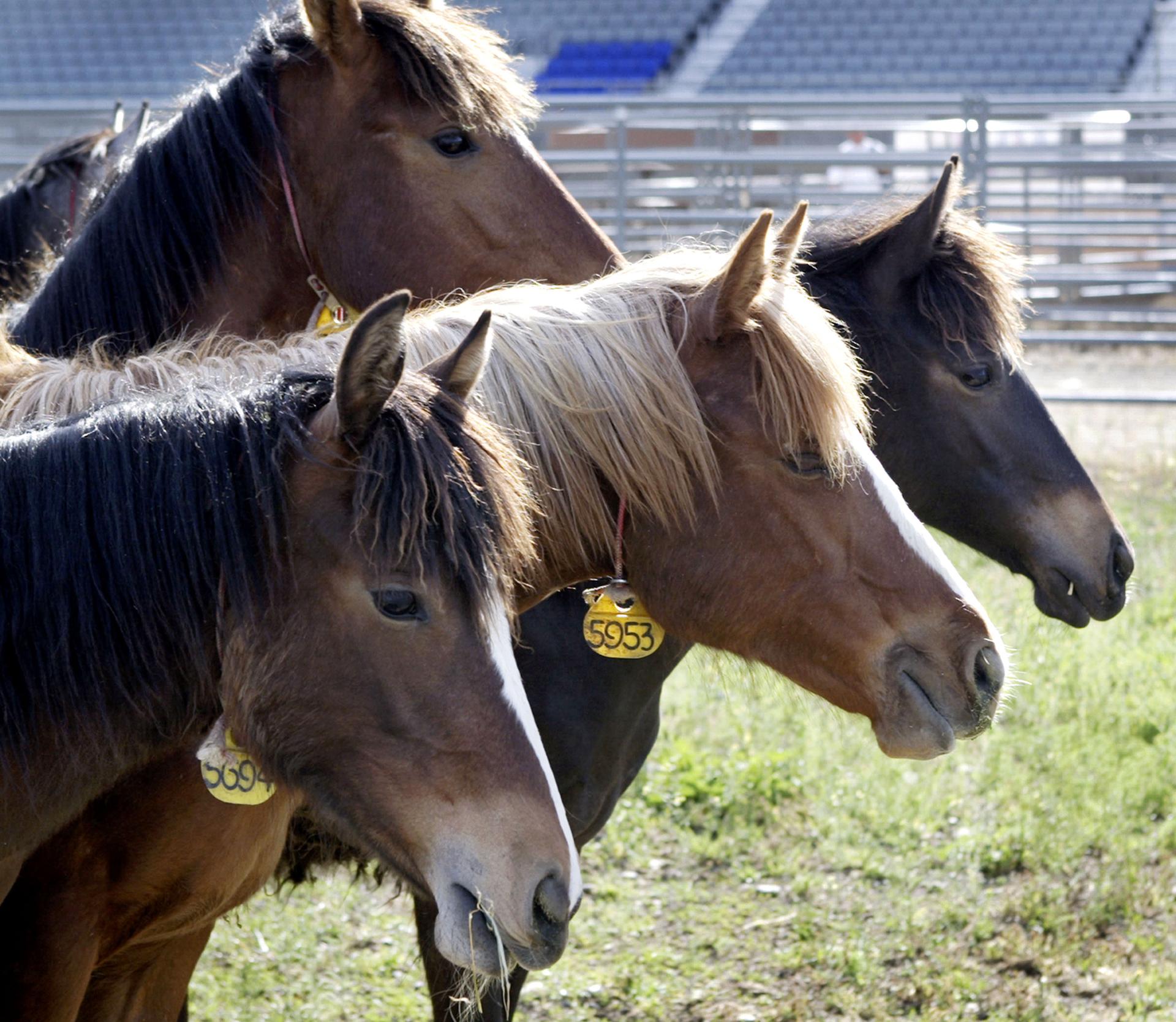Global warming may shrink mammals, study finds
Wild yearling fillies from the Oregon rangelands graze at the Spokane fairgrounds in Washington on May 13, 2005.
Mammals may shrink if global warming continues, a new study suggests.
Scientists looking into how dramatic climate change event can affected body size reported that in the ancient past, higher temperatures meant smaller mammals, VOA reported, citing research published in the journal Science.
The last known brief, but dramatic climate change — called the Paleocene-Eocene Thermal Maximum, or PETM for short — took place 56 million years ago and lasted about 175,000 years.
The event, Bloomberg wrote, caused the first horses — called Sifrhippus, and already tiny in stature compared with present-day animals — to shrink 30 percent to about 8.5 pounds, the size of a house cat today.
As the climate cooled, the Sifrhippus — which according to the New York Times lived in what is now the Bighorn Basin of Wyoming, where wild mustangs roam — began to grow in size.
The researchers, led by Ross Secord, of the University of Nebraska-Lincoln and Jonathan Bloch, of the Florida Museum of Natural History at the University of Florida in Gainesville, studied fossilized teeth to reach their findings.
Then, "using fine-grained detail on both climate and body size, the researchers concluded that the change in size was, as suspected, driven primarily by the warming trend."
"It seems to be natural selection," the Times quoted Secord as saying.
Animals evolved to be smaller during warming because smaller animals did better in that environment, he said, perhaps because it is easier to shed excess heat.
According to the Science report, the animals shrank by 30 percent over a period of 130,000 years, before reversing and becoming 75 percent bigger over the next 45,000 years.
The current warming period was occurring on a scale of hundreds of years, not thousands, the Times wrote, meaning scientists could only speculate on whether modern mammals would shrink.
“It’s difficult to say that mammals are going to respond in the same way now," Secord reportedly said. "If I had to guess," he said, some would get smaller.
Studies had shown some birds to be getting smaller in response to warming, he said.
